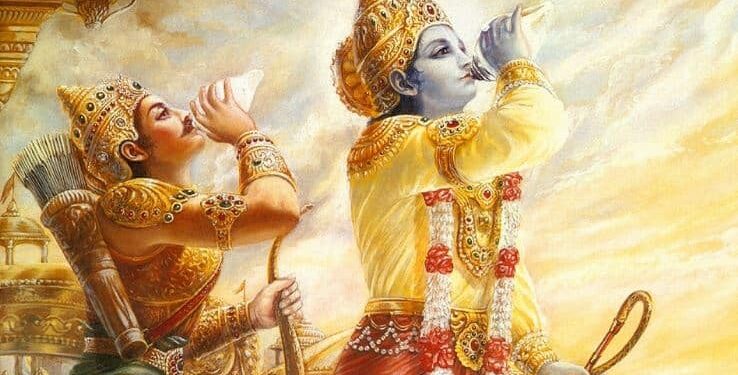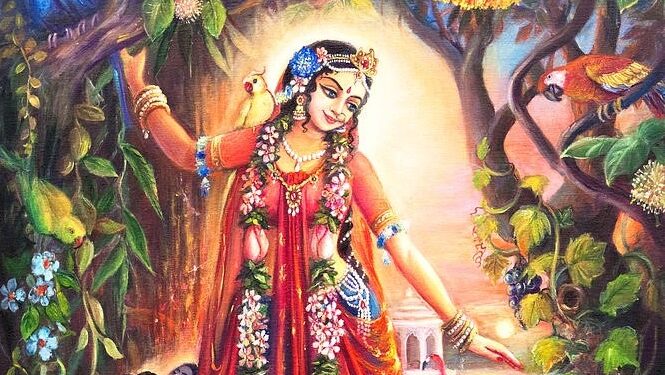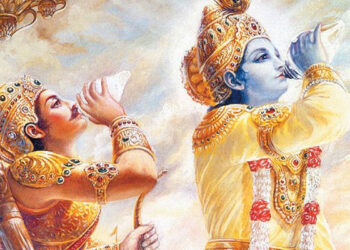TEXT 23
śaknotīhaiva yaḥ soḍhuṁ
prāk śarīra-vimokṣaṇāt
kāma-krodhodbhavaṁ vegaṁ
sa yuktaḥ sa sukhī naraḥ
SYNONYMS
śaknoti—is able; iha eva—in the present body; yaḥ—one who; soḍhum—to tolerate; prāk—before; śarīra—the body; vimokṣaṇāt—giving up; kāma—desire; krodha—and anger; udbhavam—generated from; vegam—urges; saḥ—he; yuktaḥ—in trance; saḥ—he; sukhī—happy; naraḥ—human being.
TRANSLATION
Before giving up this present body, if one is able to tolerate the urges of the material senses and check the force of desire and anger, he is well situated and is happy in this world.
PURPORT
If one wants to make steady progress on the path of self-realization, he must try to control the forces of the material senses. There are the forces of talk, forces of anger, forces of mind, forces of the stomach, forces of the genitals, and forces of the tongue. One who is able to control the forces of all these different senses, and the mind, is called gosvāmī, or svāmī. Such gosvāmīs live strictly controlled lives, and forgo altogether the forces of the senses. Material desires, when unsatiated, generate anger, and thus the mind, eyes and chest become agitated. Therefore, one must practice to control them before one gives up this material body. One who can do this is understood to be self-realized and is thus happy in the state of self-realization. It is the duty of the transcendentalist to try strenuously to control desire and anger.
TEXT 24
yo ‘ntaḥ-sukho ‘ntar-ārāmas
tathāntar-jyotir eva yaḥ
sa yogī brahma-nirvāṇaṁ
brahma-bhūto ‘dhigacchati
SYNONYMS
yaḥ—one who; antaḥ-sukhaḥ—happy from within; antaḥ-ārāmaḥ—actively enjoying within; tathā—as well as; antaḥ-jyotiḥ—aiming within; eva—certainly; yaḥ—anyone; saḥ—he; yogī—a mystic; brahma-nirvāṇam—liberation in the Supreme; brahma-bhūtaḥ—being self-realized; adhigacchati—attains.
TRANSLATION
One whose happiness is within, who is active and rejoices within, and whose aim is inward is actually the perfect mystic. He is liberated in the Supreme, and ultimately he attains the Supreme.
PURPORT
Unless one is able to relish happiness from within, how can one retire from the external engagements meant for deriving superficial happiness? A liberated person enjoys happiness by factual experience. He can, therefore, sit silently at any place and enjoy the activities of life from within. Such a liberated person no longer desires external material happiness. This state is called brahma-bhūta [Bg. 18.54], attaining which one is assured of going back to Godhead, back to home.



















